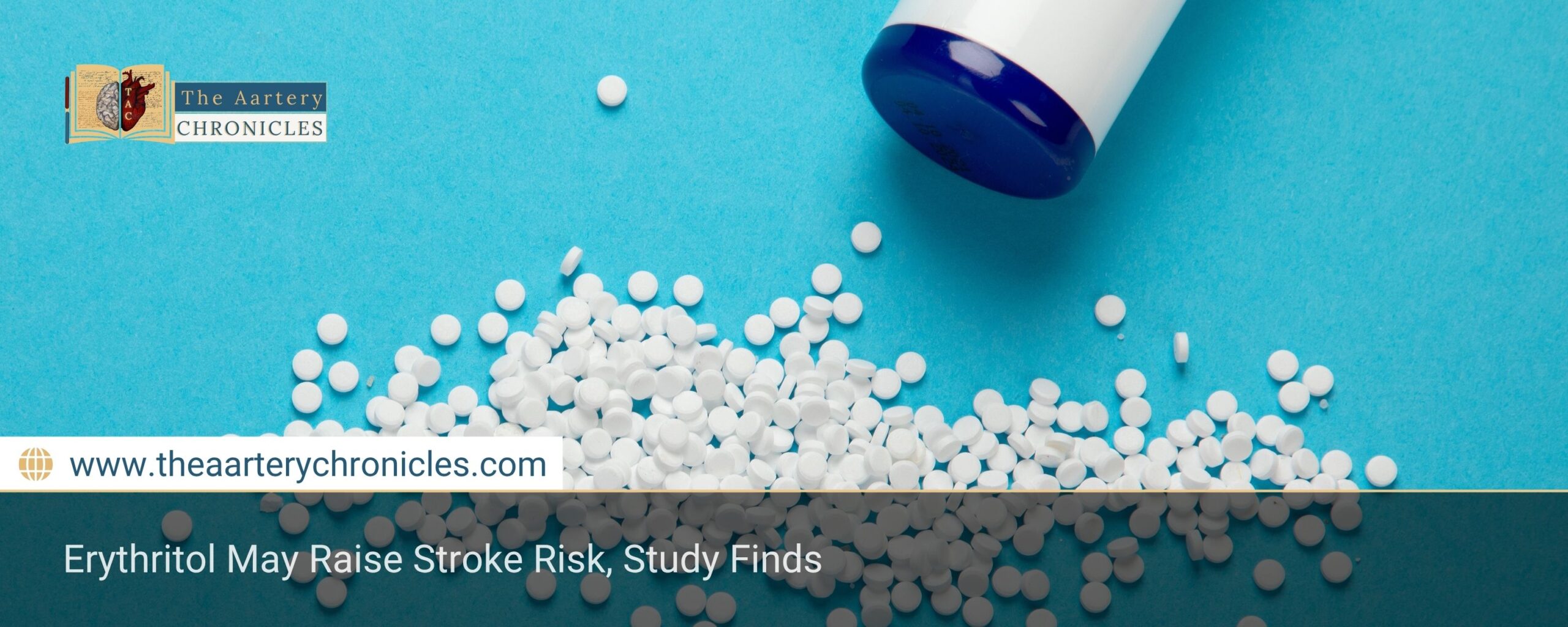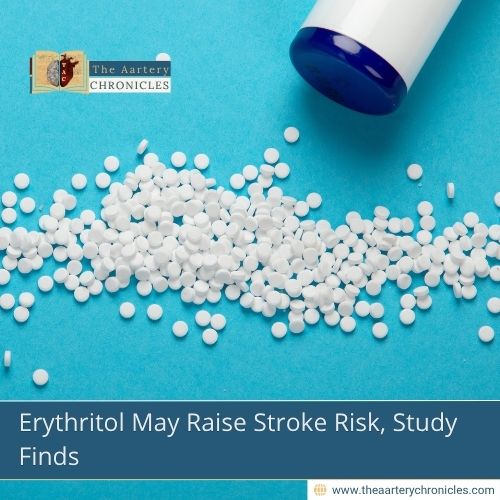

Think Erythritol Is Safe? New Study Suggests Otherwise
Summary: Erythritol, the sugar substitute found in “sugar-free” and low-carbohydrate foods, may be more dangerous than previously believed. A new study indicates even low doses are toxic to brain blood vessel cells and could make people more susceptible to stroke. The research is raising questions about the long-term safety of the popular sweetener.
Erythritol May Raise Stroke Risk, Study Finds
From sugar-free sodas to keto-friendly bars, erythritol is in everything. But a new study says this popular sugar substitute might be putting your brain at risk.
Scientists at the University of Colorado Boulder have discovered that small doses of erythritol, a ubiquitous sugar alcohol, can induce detrimental alterations in brain blood vessels. These alterations may increase stroke risk, particularly among those who use it repeatedly.
What Is Erythritol and Why Do People Use It?
Erythritol is a non-nutritive sweetener, meaning it adds sweetness without calories or sugar spikes.
It’s produced by fermenting corn and is about 80% as sweet as sugar. It’s been an important part of low-carb, ketogenic, and diabetic diets since the FDA approved it in 2001 because it has an almost negligible effect on insulin.
But “sugar-free” is not necessarily “risk-free.”
Findings of the Study
The new study, published in the Journal of Applied Physiology, found that exposing human brain blood vessel cells to erythritol, even in small amounts, caused serious changes:
- Reduced nitric oxide production (an important molecule that dilates blood vessels)
- Increased endothelin-1 (a protein that constricts blood vessels)
- Impaired capacity to degrade clots when subjected to thrombin
- Amplified generation of reactive oxygen species (free radicals, inducing inflammation and cellular damage)
These alterations render blood vessels narrower and less efficient at dissolving clots, directly raising the risk of stroke.
“Our research demonstrates not only that erythritol may increase stroke risk, but also how it does that,” said lead researcher Auburn Berry.
Erythritol Associated with Cardiac Events in Humans
This research builds upon previous work conducted among 4,000 individuals in Europe and the Americas. In the earlier research, individuals with a higher concentration of erythritol in the blood were found to be much more likely to develop heart attacks or strokes within the next three years.
Should You Avoid Erythritol?
The researchers are cautious. This was a lab-based study, not a clinical trial on people. But they suggest being mindful about erythritol intake, especially for those who consume multiple servings daily.
Although more human research is required, these early results spur us to question how safe so-called “safe” artificial sweeteners are.
Final Takeaway: Rethink the "Sugar-Free" Label
Erythritol is not so innocent a sweetener as it appears. If you’re relying on it to cut sugar or control diabetes, think twice about balancing its possible dangers to your brain and heart health. Until we know more, moderation and label-awareness are the solution.
Also Read: Artificial Sweeteners: Are they Good?

Dane
I am an MBBS graduate and a dedicated medical writer with a strong passion for deep research and psychology. I enjoy breaking down complex medical topics into engaging, easy-to-understand content, aiming to educate and inspire readers by exploring the fascinating connection between health, science, and the human mind.








